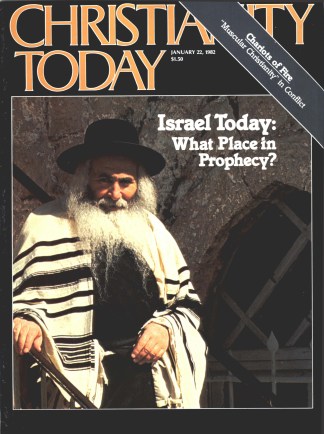For many evangelicals, Riverside Drive in New York City is the center of power for the National Council of Churches. It is a mysterious nest from which are spawned an endless brood of irritants to evangelicals—if not downright heresies. J. D. Douglas sheds light on the home of the NCC, and reveals it to be inhabited by well-meaning individuals doing their best to set the world aright according to their lights. Even a little light helps us to see better, and in this case, perhaps, the shedding of light will dispel some of the mystery and some of the fear of that important religious structure that purports to represent 40 million American church members.
Though the light in Dr. Douglas’s article will hardly dispel evangelical opposition to the works of the NCC, perhaps it will enable evangelicals to direct their wrath more accurately. No doubt another article is needed to point out the things that the National Council of Churches does that evangelicals can approve of with good conscience. In any case, we plan soon to run an article on the subject “What We at the NCC Would Like Evangelicals to Know About Us.”
Once again, this time after only two years, Inter-Varsity Christian Fellowship has presented to college and university students a call to missionary commitment at Urbana. Eager students have just returned to their home churches, where the flaming vision will sputter and die—or be nourished, strengthened, and sustained. In this issue’s Minister’s Workshop, youth pastor Paul Borthwick tells how to keep that flame for missions burning brightly for youth.
Mark Hanna’s “Israel Today: What Place in Prophecy?” is a hard-hitting article demanding no special treatment by evangelicals for the nation of Israel. He writes as a dispensationalist, although he thinks dispensationalists generally are Israel’s most ardent supporters. Jerry Falwell’s reply is equally hard hitting. Although it sets forth a strong biblical case for special concern for Israel, it falls short of condoning Israel’s sin or of failing to display Christian love for all Arabs. Falwell’s biblical exegesis is hard to fault—but evangelicals dare not ignore biblical caveats cited by Hanna, either.
While not every evangelical will feel totally comfortable with the inclusions of either view, no one should overlook the immensely significant areas of agreement between them, and especially their stern repudiation of a growing anti-Semitism. In the light of history, I would rather err on the side of favoring Israel too much than of failing to condemn adequately a resurgent anti-Semitism. Never forget: it was nominal Christians who created the Holocaust!










